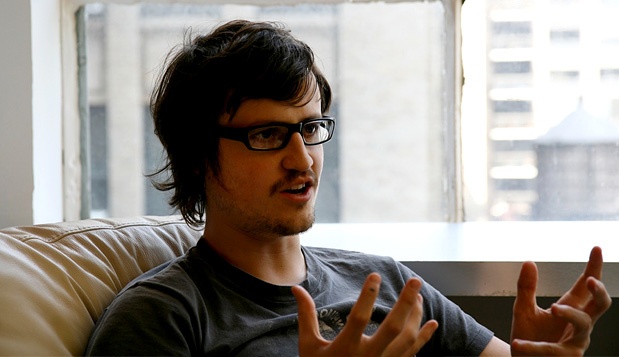If you truly believe in the potential of your company to change the world for the better, there’s no excuse for settling for an acquisition.

I was reading through this month’s Inc. magazine earlier when this quote caught my eye. My first thought was to challenge the notion. There are specific occasions when an acquisition is exactly what a company needs to move forward or to move on. This is just how things work, but the bold words sparked my interest enough to turn the page. I flipped to Issie Lapowsky’s feature with Vimeo founder Jake Lodwick. Lodwick was fired a year and a half after selling Connected Ventures, the parent company of Vimeo and College Humor, to InterActive Corp, an Internet company that owns the likes of match.com, Urbanspoon, and dictionary.com. After the acquisition, he felt stripped of his creativity. Where innovation once dwelled, process was introduced. Lodwick was fired a week and a half before he planned to quit. This experience backs his words of advice to entrepreneurs who think an acquisition means nothing will change within the mission of an organization. Lodwick bitterly states that “in fact the mission was lost, and everything will change.”
I will agree with Lodwick’s assessment: with acquisition comes change. As much as founders want to hope things can stay the same, an acquisition by a larger corporation is bound to introduce the structure of HR, meetings upon meetings to determine strategy, largely controlled by the acquirer, and ultimately answering to someone else. Lodwick says “an acquisition is the loss of a dream.” While this might be true in some cases, I don’t think founders have to relinquish all power or visionary control. Is an acquisition a larger corporation’s awareness and possible fear of up-and-coming competition? Surely. But as long as the corporation has the insight to fuel the startup’s innovative workings, an acquired organization can learn to act independently side by side with its acquirer. Campbell’s acquisition of Plum Organics is an example of both of the former.
In order to procure or possess this arrangement, a founder or founders have to have the foresight to prepare for changes—changes in role, changes in day-to-day duties, changes in overseeing new functions or areas—in order to be rightly equipped to remain in a leading role or CEO title. It appears Inc. agrees, since they had the foresight to pair Lodwick’s declarative Q&A with Eric Paley’s “How Not to Get Fired”, a guide for founders on how not to get replaced. Paley’s tips approach the founder as someone with the wisdom to adjust their behavior or role so as to breed faith and trust in the investors and/or acquirers of his or her company.
Paley lists three fireable offenses:
1) Failing to address real problems – Once a startup is acquired or investors have bought in, the BS-ing has to come to an end. They’ve bought in, now it is time to tell them the truth. Are things going well? Is there a setback in sales? Has product development hit a snag? A founder who wants to remain a contributing member of their vision has to realize that these people (whether it’s your board, an investor, etc.) are here to keep the business thriving as well. Let them in on the daily struggles, owning them with certainty, credibility and a plan to improve upon them. This shows accountability with those people that brought you on in the first place because of your ability to sell the idea and passion of your company. Leave the grandiose at the door. Get down to the nit and grit.
2)Neglecting functions outside your comfort zone – Founders tend to come in with a specialized skill. Maybe it’s sales. Maybe its product development. Whatever it is, as a founder it is your job to realize there are specialties outside of yours that need apt attention and direction. It is easy to get tunnel vision on the area you know best. But a wise founder knows he or she will have to take a step back from this in order to better lead the overall direction of the organization. Instagrams co-founder Mike Krieger struggled with letting go of what he knew best, saying “at first, I was like, ‘Ah I wish I was coding’. But you can get so much more done once you imbue a while team with a particular culture.”
3)Not recruiting an awesome senior team – many founders are hesitant to recruit a senior team with more skill or experience out of fear of competition, but this a shortsighted approach. Knowing that you are not the possessor of all knowledge and expertise is an asset that will propel you to bring in people who can better handle areas of your business that need expansion or growth. Bringing in a VP of Sales (when the time calls for it, that is – this should not be your first hire just because you think you’re supposed to have one.) or other senior managers shouldn’t be a threat to your position. Instead, this should be proof of your ability not only to bring in smart and talented people, but also to anticipate their need in order to continue your growth as a company.
To regroup on Lodwick’s initial quote, I ultimately agree that settling for an acquisition should not be the only endgame of a founder. Not because acquisitions are bad or unnecessary. No, that’s isn’t it at all. Sometimes, acquisitions are the best course of action for a company’s livelihood and long-term success – the opposite of “settling.” But a founder who is committed to building a company that truly enhances the world in which we live, should know when it’s time to sell vs. when it’s not, in order to carry out that mission. This commitment will be the thing that prepares a founder for a changing role and keeps them constantly dodging fireable offenses in order to reach the goal they ultimately seek.